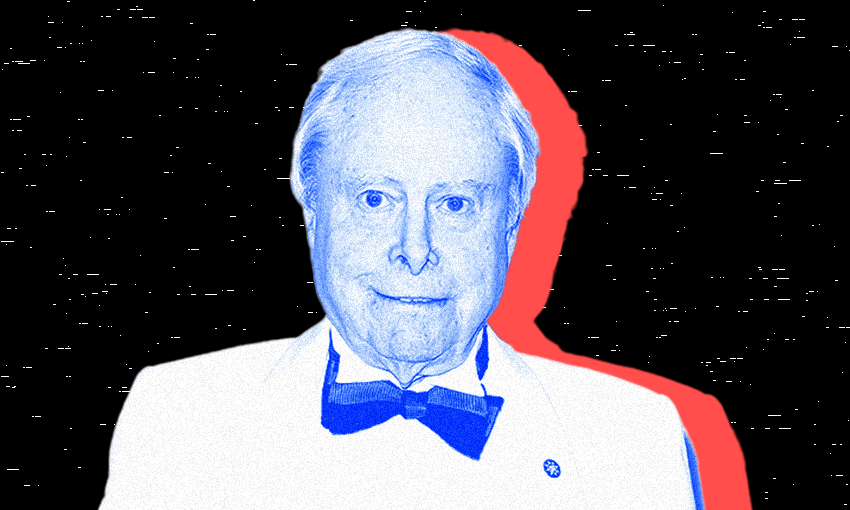Today, name suppression for the prominent businessman convicted in 2021 of sexually assaulting three men lapsed with a final judgment from the Supreme Court. He was revealed to be well-known arts philanthropist James Wallace.
Who is Sir James Wallace?
Sir James Wallace is a well-known arts philanthropist and rich lister. Through the Arts House Trust (formerly the Wallace Arts Trust), he holds one of the largest collections of art in the country (much of which is on display at the Pah Homestead) and runs the Wallace Art Awards, the most lucrative award for visual art in the country, although they have not been held since since 2021. His fortune is inherited, coming from the meat-rendering Wallace Corporation.
He is the founding underwriter of the Auckland Chamber Orchestra, a founding patron of the Auckland Theatre Company, NZ Opera, NZ Ballet, and, until very recently, he was a patron or sponsor of countless arts organisations around the country. He is currently funding the restoration of the earthquake-damaged McLean’s Mansion in Christchurch, the country’s largest timber house.
Why is his name suddenly in the news?
While his name has only just been released after several unsuccessful appeals for suppression from NZME and Stuff, Wallace has been written about considerably for several years, named only as “a prominent businessman”. Since 2016, Wallace has had name suppression after being charged with three instances of indecent assault and two charges of attempting to dissuade a witness. The assaults took place in 2001, 2006 and 2016. After several years of postponements, the four-week trial was held in early 2021. On March 23 he was found guilty on all charges and sentenced to two years and four months in prison.
What did he do?
Wallace was found guilty of sexually assaulting three men at his Epsom home, Rannoch House. These assaults had occurred in 2000 or 2001, 2008 and 2016.
In the earlier cases, both men had been invited to Rannoch House for meetings. One of the men believed that Wallace had spiked his drink.
In the 2016 assault, the victim was living and working at the house. After he went the police, the businessman and others made several attempts to convince him to drop the complaint.
Was he the only one convicted in the case?
The trial involved Wallace’s manager, Mustafa Yikar, whose name suppression was also lifted today, as well as a “well-known entertainer” revealed to be Mika Haka. Both were sentenced to home detention for attempting to dissuade a victim to drop a complaint.
The case made headlines several times, including an instance where Wallace made personal pleas via email to more than 100 people and organisations for letters of support to present to the judge for lesser sentencing, and brought in names as varied as Jevan Goulter, who gave evidence after being granted immunity from prosecution, and Michelle Boag, who did not have any role in the episode, despite Goulter’s initial claims.
Wallace was released on bail (after two unsuccessful attempts at release) in August 2021, only to return to prison in February of this year after the Court of Appeal dismissed his appeals of his convictions and sentence.
Why is this such a big deal?
Although personally press-shy (his only concession being a Michelle Hewitson profile for the Herald in 2011), Wallace is a massive name in the arts world – especially visual arts and film. For years leading up to the trial and even throughout it, he was a name patron for Auckland’s most prominent arts organisations.
He is a named producer on several short films (including Gurl, directed by co-conspirator Mika Haka), queer classic Desperate Remedies and most prominently, Taika Waititi’s film Hunt for the Wilderpeople.
The Wallace Arts Trust, the largest of its nature, still bears his name and regularly runs exhibitions at the Pah Homestead.
The acting prime minister confirmed today that she had initiated the formal process of honours forfeiture, which would see Wallace’s knighthood removed.



